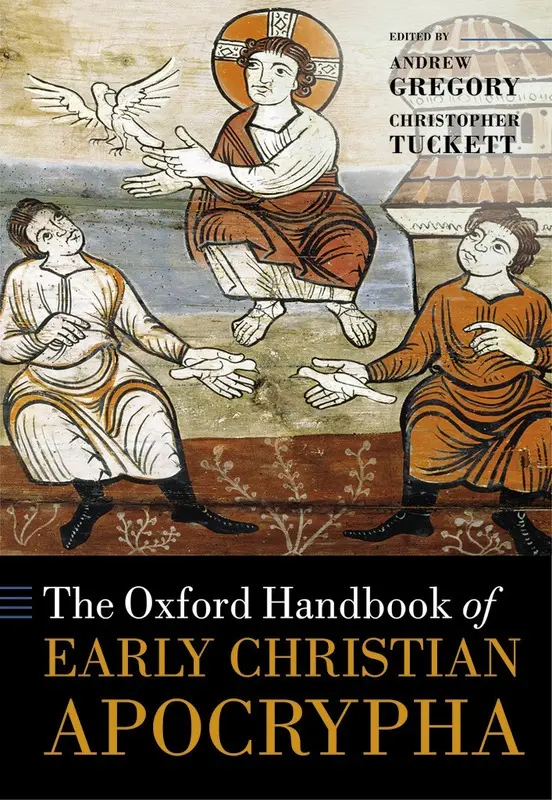
The Oxford Handbook of Early Christian Apocrypha
Редакторы : Gregory A., Tuckett C.Приняли участие : Bauckham R.J., Bovon F., Buchinger H., Burke T., Clivaz C., Elliott J.K., Foster P., Frey J., Gathercole S., Gregory A., Hartenstein J., Hurtado L.W., Jensen R.M., Lehtipuu O., Luomanen P., Moss C.R., Nicklas T., Patterson S.J., Perkins P., Pervo R.I., Schröter J., Tissot Y., Touati C., Tuckett C.Год :2015 Количество страниц :504 [405] Язык :Английский Категория :+ Не только о гнозисе Скачать : Epub PdfПоддержать :
This volume addresses issues and themes that arise in the study of early Christian apocryphal literature. Part I consists of authoritative surveys of the main branches of apocryphal literature (gospels, acts, epistles, apocalypses, and related literature) and Part II considers key issues that they raise. These include their contribution to our understanding of developing interpretations of Jesus, the apostles, and other important figures such as Mary. It also shows how these texts contribute to our knowledge of Jewish-Christian relations, Christian worship, and developing understandings of asceticism, gender, and sexuality, etc. The volume also considers questions such as which ancient readers read Early Christian Apocrypha, their place in Christian spirituality, and their place in contemporary popular culture and contemporary theological discourse. The texts discussed include the gospels of Thomas, Peter, Mary, Judas, Nicodemus, the Egyptians, the Ebionites, the Nazarenes, Gospel according to the Hebrews, Secret Gospel of Mark, the Papyrus Egerton 2, Protevangelium of James, Infancy Gospel of Thomas, Gospel of Pseudo-Matthew, De Nativitate Mariae, Acts of Peter, Paul, Andrew, John, Thomas, Philip, Pseudo-Clementine Recognitions, Pseudo-Clementine Homilies, Doctrine of Addai, Martyrdom of Stephen, 3 Corinthians, Letter to the Laodiceans, letters of Seneca and Paul, Pseudo-Titus, Letter of Peter to James, Letter of Peter to Philip, Apocryphon of James, Epistle of the Apostles, Epistula Apostolorum, letters of Jesus and Abgar, Letter of Jesus on the Sabbath, Letter of Lentulus, Apocalypse of Peter, Apocalypse of Paul, Apocalypse of Thomas, 5 Ezra, 6 Ezra, Ascension of Isaiah, Sibylline Oracles.





